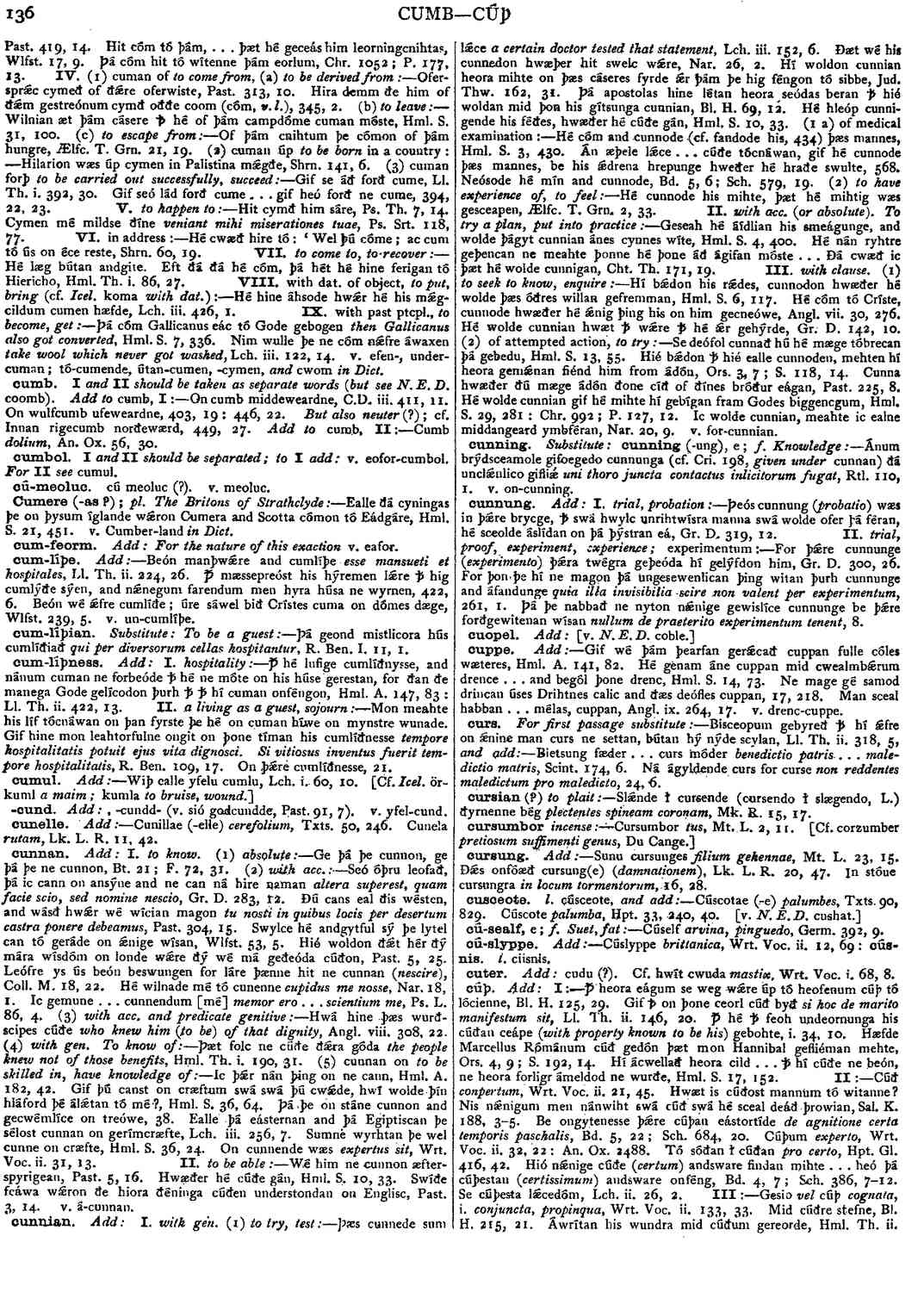cúþ
-
Ꝥ heora eágum se weg wǽre úp tó heofenum cúþ tó lócienne,
- Bl. H. 125, 29.
-
Gif ꝥ on þone ceorl cúð byð
si hoc de marito manifestum sit,
- Ll. Th. ii. 146, 20.
-
Ꝥ hé ꝥ feoh undeornunga his cúðan ceápe (
with property known to be his
) gebohte, i.- 34, 10.
-
Hæfde Marcellus Rómánum cúð gedón þæt mon Hannibal gefliéman mehte,
- Ors. 4, 9; S. 192, 14.
-
Hí ácwellað heora cild . . . ꝥ hí cúðe ne beón, ne heora forligr ámeldod ne wurðe,
- Hml. S. 17, 152.
-
Cúð
conpertum,
- Wrt. Voc. ii. 21, 45.
-
Hwæt is cúðost mannum tó witanne? Nis nǽnigum men nánwiht swá cúð swá hé sceal deáð þrowian,
- Sal. K. 188, 3-5.
-
Be ongytenesse þǽre cúþan eástortíde
de agnitione certa temporis paschalis,
- Bd. 5, 22; Sch. 684, 20.
-
Cúþum
experto,
- Wrt. Voc. ii. 32, 22: An. Ox. 2488.
-
Tó sóðan ł cúðan
pro certo,
- Hpt. Gl. 416, 42.
-
Hió nǽnige cúðe (
certum) andsware findan mihte . . . heó þá cúþestan (certissimum )
andsware onféng,- Bd. 4, 7; Sch. 386, 7-12.
-
Se cúþesta lǽcedóm,
- Lch. ii. 26, 2.
-
Gesio
vel cúþ cognala, i. conjuncta, propinqua,
- Wrt. Voc. ii. 133, 33.
-
Mid cúðre stefne,
- Bl. H. 215, 21.
-
Áwrítan his wundra mid cúðum gereorde, Hml. Th. ii.514, 30, Heora cúðan (cúþe, v. l.) menn and heora geféran
illorum socii,
- Bd. 5, 10; Sch. 603, 20.
-
Cúðra manna
cognatorum,
- Nar. 37, 5, v. dæg-, mǽg-, seld-cúþ.
Bosworth, Joseph. “cúþ.” In An Anglo-Saxon Dictionary Online, edited by Thomas Northcote Toller, Christ Sean, and Ondřej Tichy. Prague: Faculty of Arts, Charles University, 2014. https://bosworthtoller.com/42248.
Checked: 0